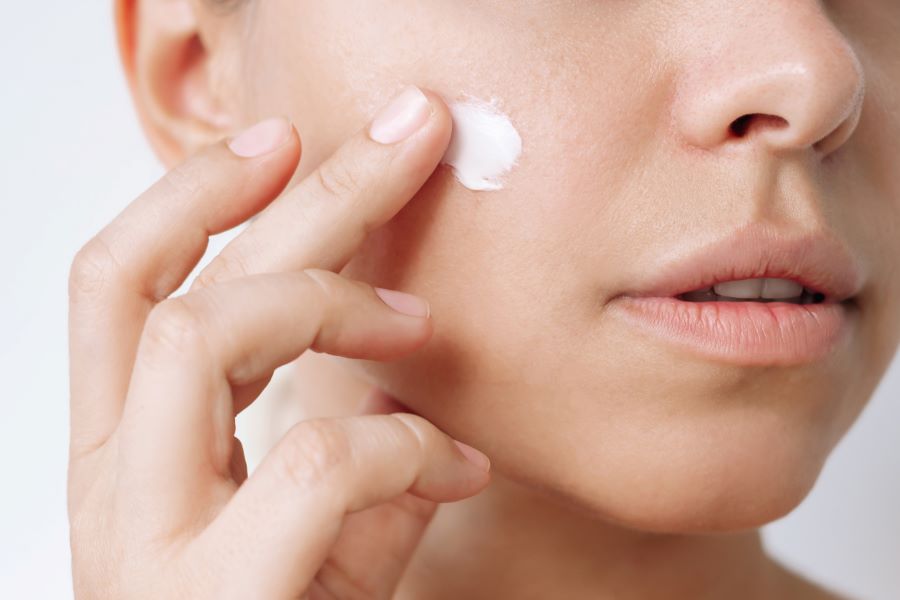Beauty Sleep: The Science of Overnight Skin Renewal
In the realm of beauty and wellness, a revolutionary concept is gaining traction: beauty sleep. Far from being just a catchy phrase, this phenomenon is rooted in scientific research that reveals the intricate processes our skin undergoes during nighttime rest. As we slumber, our bodies engage in a complex dance of cellular regeneration and repair, particularly within our largest organ - the skin. This nocturnal renewal process has captured the attention of dermatologists, sleep experts, and skincare formulators alike, leading to a surge in products and practices designed to optimize our overnight beauty routines. The intersection of sleep science and skincare is opening up new frontiers in our quest for radiant, healthy skin, prompting a reevaluation of how we approach our nightly rituals and the importance we place on quality sleep.

Research has shown that skin cell division peaks between 11 PM and 4 AM. This increased cellular activity is accompanied by a rise in blood flow to the skin, enhancing the delivery of nutrients and oxygen. Simultaneously, the production of collagen - the protein responsible for skin’s firmness and elasticity - ramps up during these nighttime hours.
The skin’s permeability also increases at night, making it more receptive to topical treatments. This heightened absorption capacity has significant implications for skincare routines, suggesting that nighttime may be the optimal window for applying certain products.
Hormonal Harmony and Skin Health
The relationship between sleep and skin health is further underscored by hormonal fluctuations that occur during rest. Melatonin, often referred to as the sleep hormone, plays a crucial role in regulating our sleep-wake cycle. Lesser known is its function as a potent antioxidant that helps protect skin cells from oxidative stress.
Growth hormone, which stimulates cell reproduction and regeneration, reaches its peak production during deep sleep stages. This hormone is vital for maintaining skin thickness and elasticity, contributing to a more youthful appearance.
Conversely, lack of sleep can lead to increased levels of cortisol, the stress hormone. Elevated cortisol can break down collagen, exacerbate inflammatory skin conditions, and impair the skin’s ability to retain moisture.
The Impact of Sleep Deprivation on Skin
The consequences of insufficient sleep extend beyond mere fatigue - they’re visibly etched on our skin. Chronic sleep deprivation can accelerate the aging process, leading to premature wrinkles, uneven skin tone, and a loss of skin elasticity.
A groundbreaking study conducted by the University Hospitals Case Medical Center found that poor sleepers showed increased signs of skin aging, including fine lines, uneven pigmentation, and reduced skin elasticity. The study also revealed that sleep-deprived individuals recovered more slowly from environmental stressors such as sun exposure.
Furthermore, lack of sleep can exacerbate existing skin conditions. Psoriasis, eczema, and acne have all been linked to sleep disturbances, with flare-ups often coinciding with periods of sleep deprivation.
Optimizing the Sleep Environment for Skin Health
Creating an optimal sleep environment is crucial for maximizing the skin’s overnight renewal process. Temperature regulation plays a significant role, with studies suggesting that a slightly cool room (around 65°F or 18°C) is ideal for promoting quality sleep.
Humidity levels also impact skin health during sleep. Dry air can lead to transepidermal water loss, causing skin dehydration. Using a humidifier in the bedroom can help maintain optimal moisture levels, supporting the skin’s barrier function.
The choice of bedding materials can also influence skin health. Silk pillowcases have gained popularity due to their smooth texture, which reduces friction and helps prevent sleep lines and wrinkles. Additionally, silk is less absorbent than cotton, allowing skincare products to remain on the skin rather than transferring to the pillowcase.
Nighttime Skincare: Harnessing the Power of Sleep
The beauty industry has embraced the concept of beauty sleep, developing products specifically formulated for nighttime use. These formulations often contain higher concentrations of active ingredients, taking advantage of the skin’s increased permeability and regenerative processes during sleep.
Retinoids, powerful derivatives of vitamin A known for their anti-aging properties, are frequently recommended for nighttime use. They work by accelerating cell turnover and stimulating collagen production, processes that align with the skin’s natural nighttime activities.
Peptides, short chains of amino acids that serve as building blocks for proteins like collagen and elastin, are another popular ingredient in nighttime skincare. These compounds can help support the skin’s overnight repair processes, promoting firmness and elasticity.
Hydrating ingredients like hyaluronic acid and ceramides are also crucial components of nighttime skincare routines. They help combat the natural water loss that occurs during sleep, ensuring the skin remains plump and moisturized.
The Future of Beauty Sleep
As our understanding of the relationship between sleep and skin health deepens, we can expect to see further innovations in the field of beauty sleep. Emerging technologies like sleep tracking devices and smart skincare systems may soon offer personalized recommendations based on individual sleep patterns and skin needs.
The concept of chronobiology in skincare - tailoring product application to the skin’s natural rhythms - is likely to gain more traction. This approach could lead to the development of time-released formulations that sync with the skin’s circadian rhythm, optimizing the delivery of active ingredients.
Moreover, the growing awareness of sleep’s importance in overall health and beauty may spark a cultural shift, with sleep optimization becoming a central pillar of wellness routines.
In conclusion, beauty sleep is far more than a marketing catchphrase - it’s a scientifically supported phenomenon with profound implications for skin health and appearance. By understanding and harnessing the power of nocturnal skin renewal, we can unlock new dimensions of beauty and wellness, proving that sometimes, the most effective beauty treatment is a good night’s sleep.




